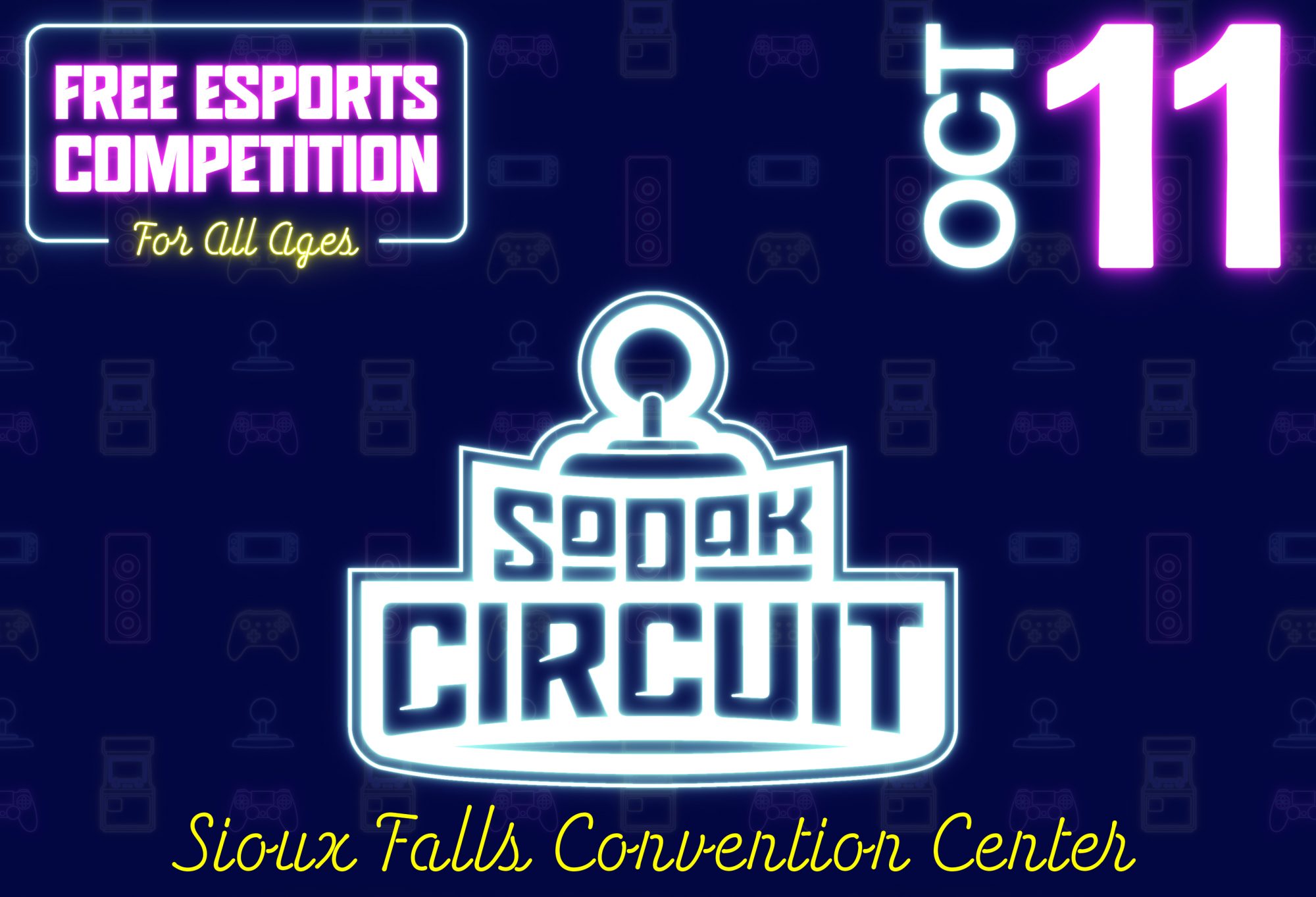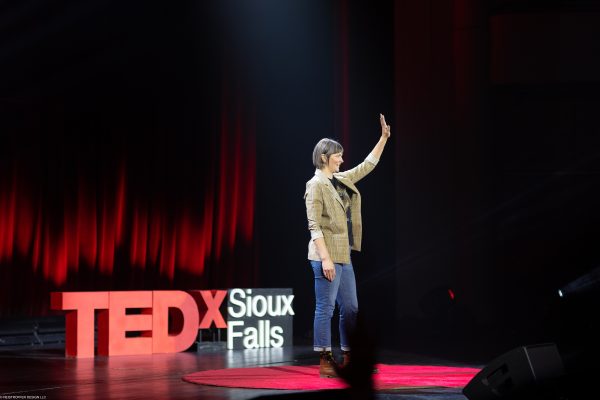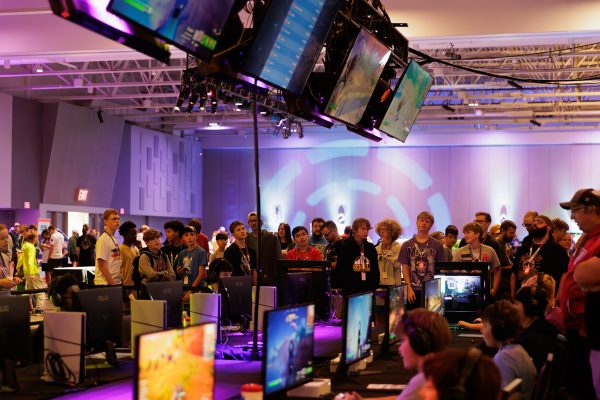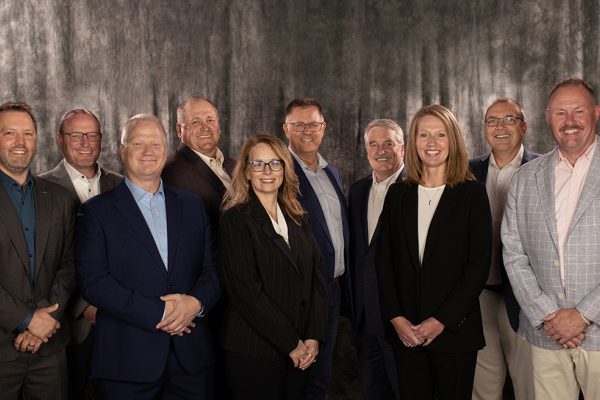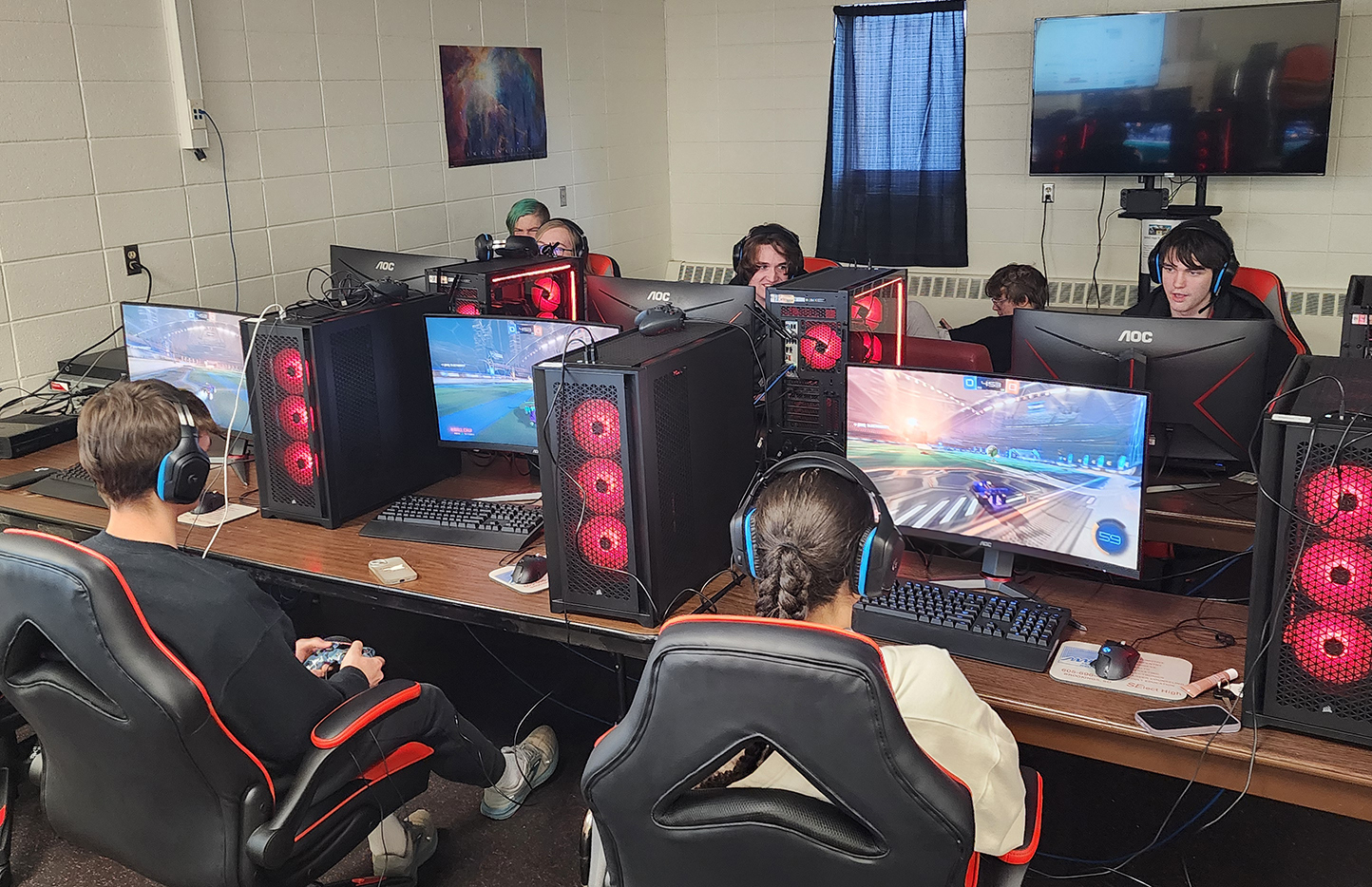
Before he joined the Woonsocket High School esports team, Brendan Evans wasn’t involved in any extracurricular activities.
Things look a whole lot different for him nowadays. Every day after classes, he gathers with teammates on the school’s esports team to practice titles like “Rocket League,” “Super Smash Bros. Ultimate” and virtual chess. It’s changed his life.
“It gives me something to look forward to every day after school,” he said. “It makes a nice little community for you, and it gives me a spot to fit in.”
The South Dakota High School Activities Association sanctioned esports for the first time this academic year. During the 2023-2024 school year, 20 schools in the state piloted esports programs in preparation. SDN Communications and its 17 member-owner companies support esports on the local level in various ways, and SDN is a prime sponsor of the state tournament.
As the first official season draws to a close with the Fenworks/SDHSAA South Dakota Esports State Tournament on Feb. 14-15 in Aberdeen, players, organizers and coaches are praising the SDHSAA for sanctioning the sport and Fenworks for putting on a successful debut season.
“Play rates are up in all titles (from the pilot season), meaning more kids take esports seriously and are dedicated to their team,” said Lane Oian, president of the North Dakota-based Fenworks, which coordinates the esports program in South Dakota.
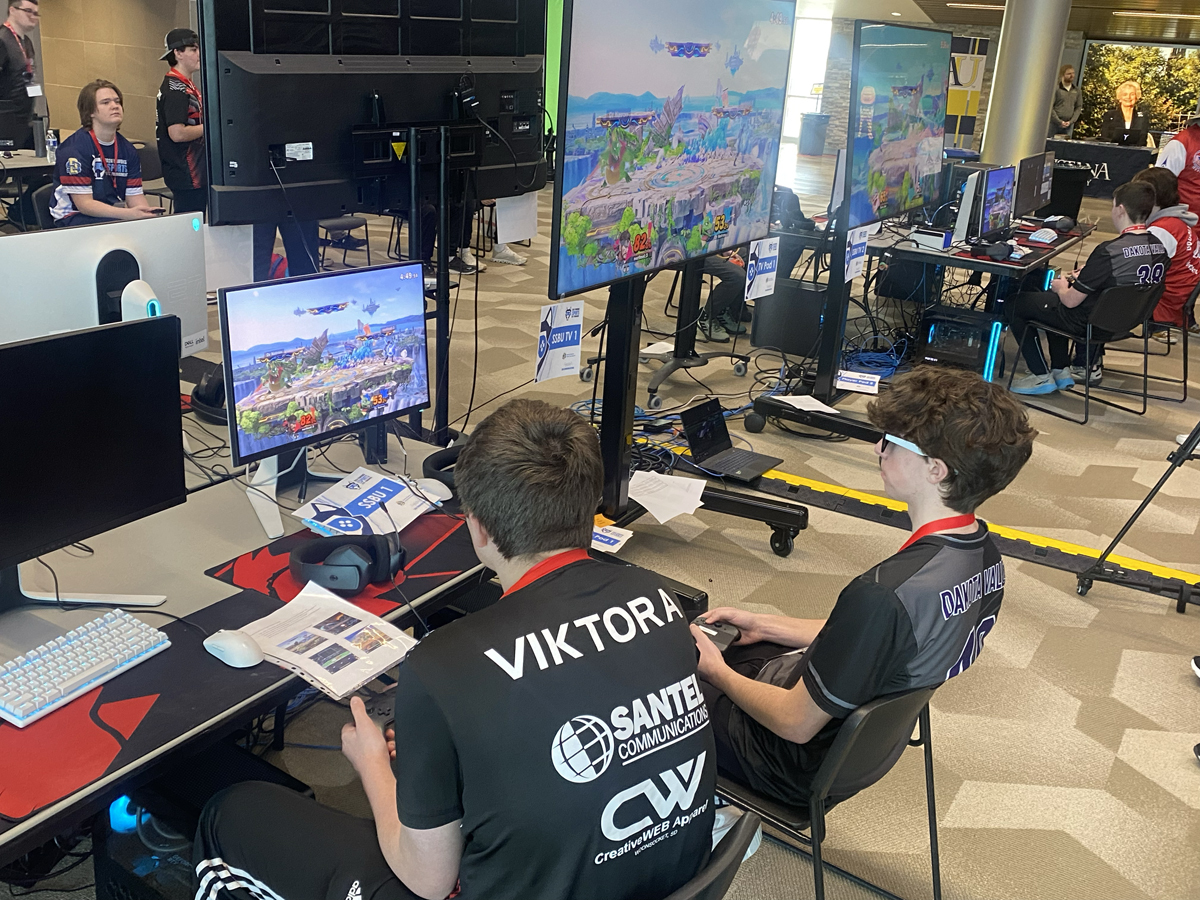
This season, 44 schools — more than doubling last year’s pilot season — are participating. During the pilot season, 297 students competed. This year, 489 are competing.
Evans, a junior, joined Woonsocket’s esports team during its pilot year and plans to continue participating throughout his high school career if not beyond.
“It gives me something to work for, and it’s fun,” he said.
First year of esports as sanctioned sport has been ‘huge’
The Woonsocket esports team currently rosters seven players, but the school’s esports club has nearly 20 participants. The club is open to any students while the official team is made up of players who must follow strict rules, just like any sanctioned school team, Woonsocket esports coach Armondo Rodriguez said.
Players on the team must practice after school each day, participate in competitions each Tuesday, follow guidelines for sportsmanship and meet grade requirements. Overall, esports teaches the same things that all sports instill in students, from teamwork and leadership skills to sportsmanship and hand-eye coordination, Rodriguez said.
The Woonsocket team, sponsored by SDN member-owner Santel Communications, competes in three of the six titles that SDHSAA sanctions — “Super Smash Bros. Ultimate,” “Rocket League” and virtual chess. The other titles are “League of Legends,” “Mario Kart 8 Deluxe” and “Minecraft Bed Wars". This year, Woonsocket’s “Rocket League” “Super Smash Bros. Ultimate” teams are 5-2 for the season.
Rodriguez, who is also the school’s football and baseball coach, said he’s seen nothing but positivity from adding esports to the school’s activities. He said that team members want to stay past practice on most days. The team and club have built new friendships, given students who didn’t have after-school activities more connection to the school and provided students with a chance to grow their leadership and communication skills.
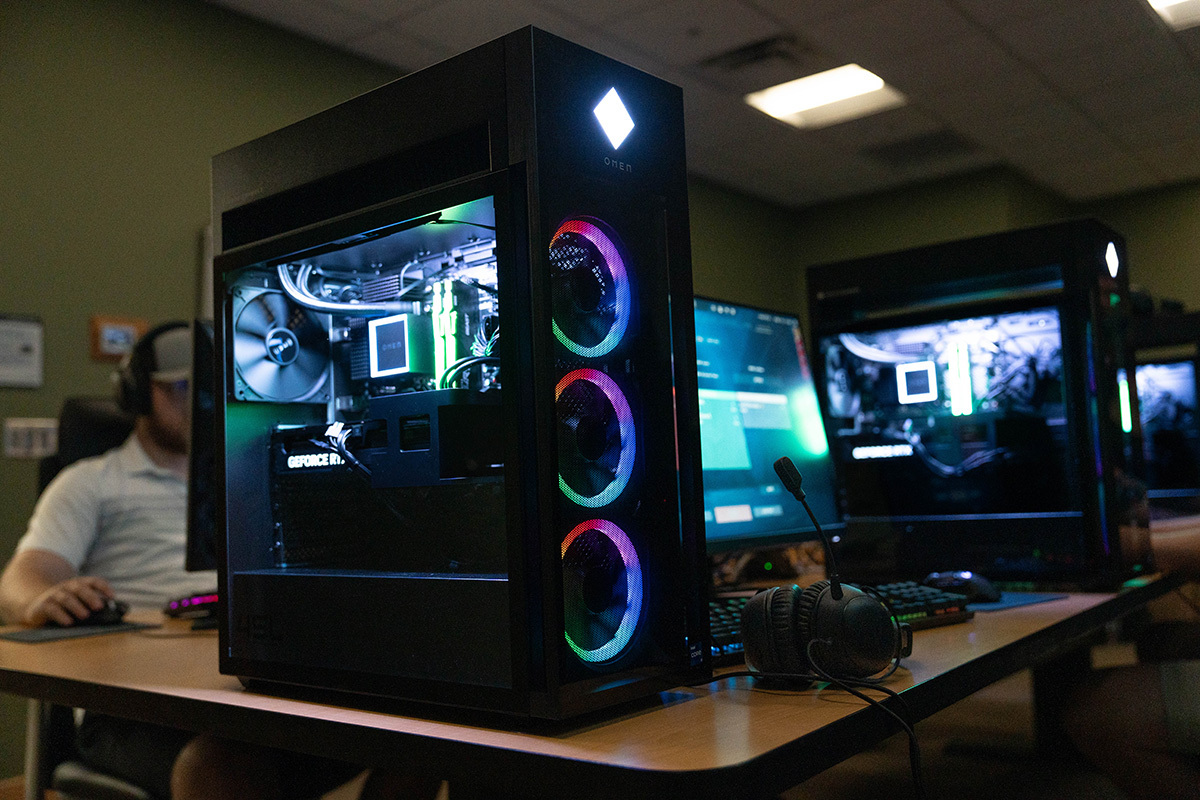
Evans agrees. “Having effective communication is very important,” he said. “And there’s been a big improvement in overall communications.”
It’s also bridged the gap for students of different ages, Rodriguez said.
“We have seventh graders who are talking to juniors and juniors are helping the seventh graders. Which would never happen in another setting,” Rodriguez said. “It’s been huge.”
‘The (gaming room) is becoming their place’
While Woonsocket is in its second year of esports, Brookings High School is in its first year of having a school team.
Coach Brad Nupen said he doesn’t play video games, but his own children did, and he saw firsthand some of the positives it brought to their lives. So when the opportunity presented itself, he jumped at the chance to start a team in Brookings. The Bobcats team is being supported by SDN member-owner company Swiftel Communications.
“I saw the need for a group of kids to have activities they can participate in,” he said.
Although the team has had members who play traditional sports, the majority do not. And esports has become an outlet for them, he said.
“It’s a great bunch of people, and (the gaming room) is becoming their place.”
Currently, the team has 22 team members. One player has been tied statewide for No. 1 in the game of chess, while three other players are in the top 25. The team also competes in “Rocket League,” “Minecraft” Bed Wars, “Mario Kart 8 Deluxe” and “Super Smash Bros. Ultimate.”
In addition to competing in the games, team members have also experimented with streaming competitions. Next year, they plan to expand even further, adding players who will announce the games.
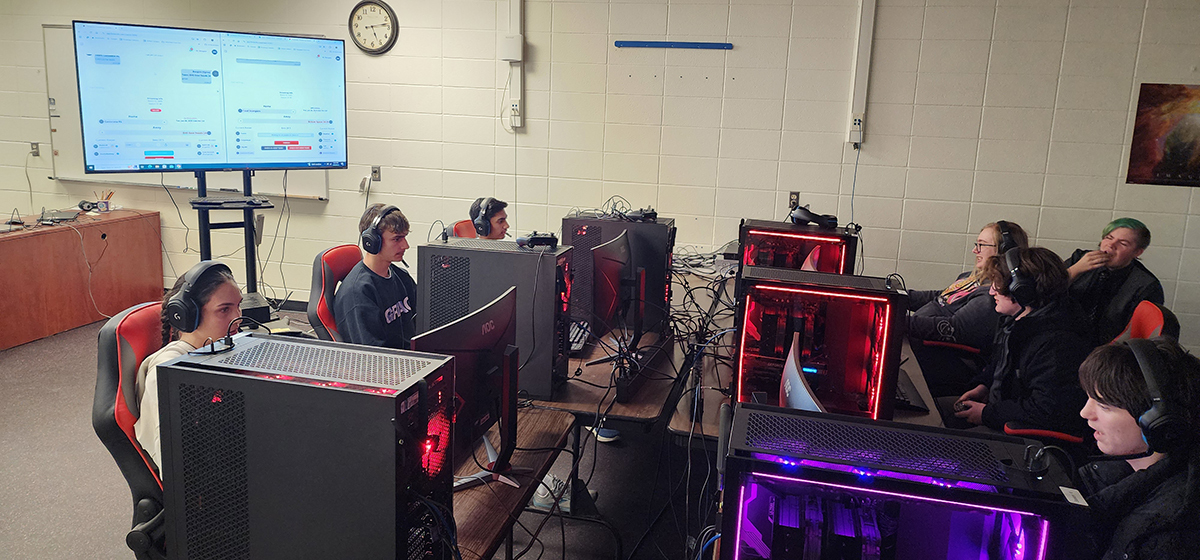
Nupen sees the benefits of esports, from game strategizing to socialization and more. And he’s pleased with how the first season has progressed.
“Overall, it’s been really successful,” he said.
First sanctioned season setting up esports future
The success of the pilot year and first sanctioned year has built a strong foundation for esports moving forward, said Jake Utities, executive director of esports for Fenworks.
“The future is exciting for high school esports because of the impressive level of interest that students have in this program. Over 90% of kids under the age of 18 already play video games, so every school that has implemented esports has been able to engage students who want to participate. A saying we like to use to showcase this is, ‘Every school has an esports team, they just may not be supporting it yet.’”
The opportunities that arise from esports teams are far beyond merely competing and practicing, Utities said.
“For some of our senior programs, we are seeing them morph into fully vocational pathways for these competitors who are building important job skills,” he said. “For example, we run a program that has student team managers, a broadcast team, a social media team and alumni coming back to coach. So not only are these participants seeing the traditional benefits of sports (teamwork, social skills, making friends, attendance improvements, academic improvements, and being happier at school) but they are also gaining the skills needed for their future careers,” he said.
Esports also gives students opportunities at the collegiate level, with more colleges offering scholarships and chances to compete.
“We are seeing more collegiate opportunities opening in South Dakota and the surrounding states, giving our players a growing pathway to post-secondary education,” Oian said.
Rodriguez agrees that the future for esports is bright. He encourages other schools to take the plunge and to reach out to Fenworks, talk to other coaches and ask for guidance, even if you don't have a vast knowledge of video games.
“You don’t have to be good at it,” Rodriguez said. “ You just have to be present for your kids.”
